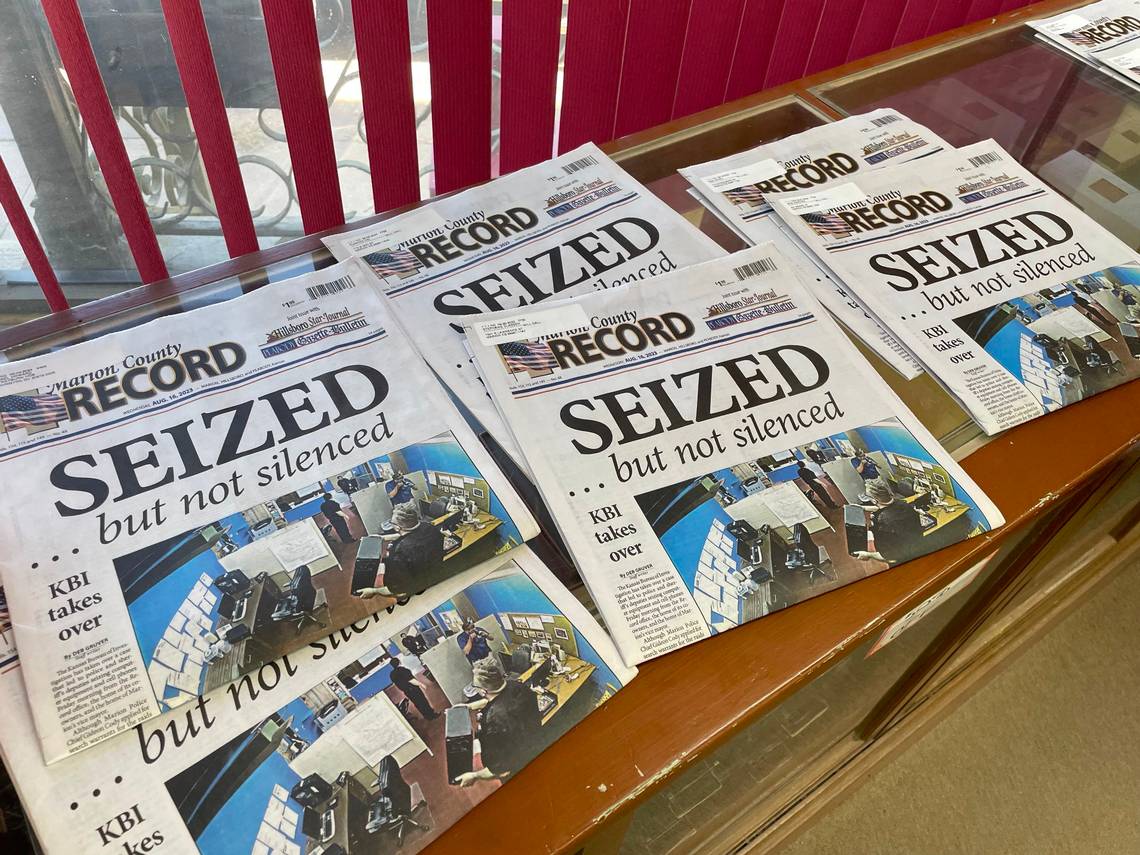The county prosecutor determined there wasn’t enough evidence to support the action, so all of the items that police had seized from the Kansas City newspapers—including computers, personal cellphones, and a router—were released on Wednesday.

Marion Police Chief Gideon Cody signed the affidavits on the day of the Kansas City Newspaper raids, but they weren’t filed until August 14. (Photo: KTAR News)
In previously undisclosed court documents, the police chief who oversaw the search of a Kansas City newspaper claimed that a reporter impersonated someone else or misled the court about her motives to obtain the driving records of a local business owner.
However, when reporter Phyllis Zorn accessed a public state website in search of information on restaurant owner Kari Newell, no laws were broken, according to Meyer, the editor, and publisher of the Marion County Record, as well as the newspaper’s attorney.
Gideon Cody, the police chief for Marion, organized the raid, which took place on August 11. The probable cause affidavits, however, were not submitted to the court until three days after the execution of the searches, according to the Kansas City newspapers.
The incident in Kansas City newspapers brought attention to the small town in central Kansas, which is now at the center of a discussion about press freedoms. Computers, individual cellphones, and a router that belonged to the newspaper were all taken by the police, but all of the items were released on Wednesday after the county prosecutor decided there wasn’t enough evidence to support the action.
READ ALSO: After Stabbing Police Officer In The Neck And Shooting A Woman In Charlotte, A Man Was Fatally Shot
The Associated Press and other news organizations received copies of the affidavits used in the raid late Saturday from the Record’s attorney, Bernie Rhodes. the records that weren’t previously made public. They demonstrated that the motivation behind the raid was Zorn’s desire to obtain Newell’s driving record.
In response to a tip, the newspaper looked up Newell’s driver’s license status about a 2008 DUI conviction on the Kansas Department of Revenue’s open website.
The Department of Revenue informed Cody, according to his affidavit, that the people who downloaded the data were Record reporter Phyllis Zorn and someone going by the name “Kari Newell.” Cody wrote that he contacted Newell, who claimed that “someone stole her identity.”
Cody stated as a result that “downloading the document involved either impersonating the victim or lying about the reasons why the record was being sought.”
According to state law, the license records are typically private, but they can occasionally be accessed for reasons listed in the affidavit. The online user must enter their date of birth and driver’s license number to request their records.
The records may also be given in other situations, such as to attorneys for use in a legal matter, insurance claims investigators, and researchers working on statistical report research projects, with the proviso that no personal information will be disclosed.
READ ALSO: A 19-Year-Old Was Detained And Charged In A Fatal Shooting
























